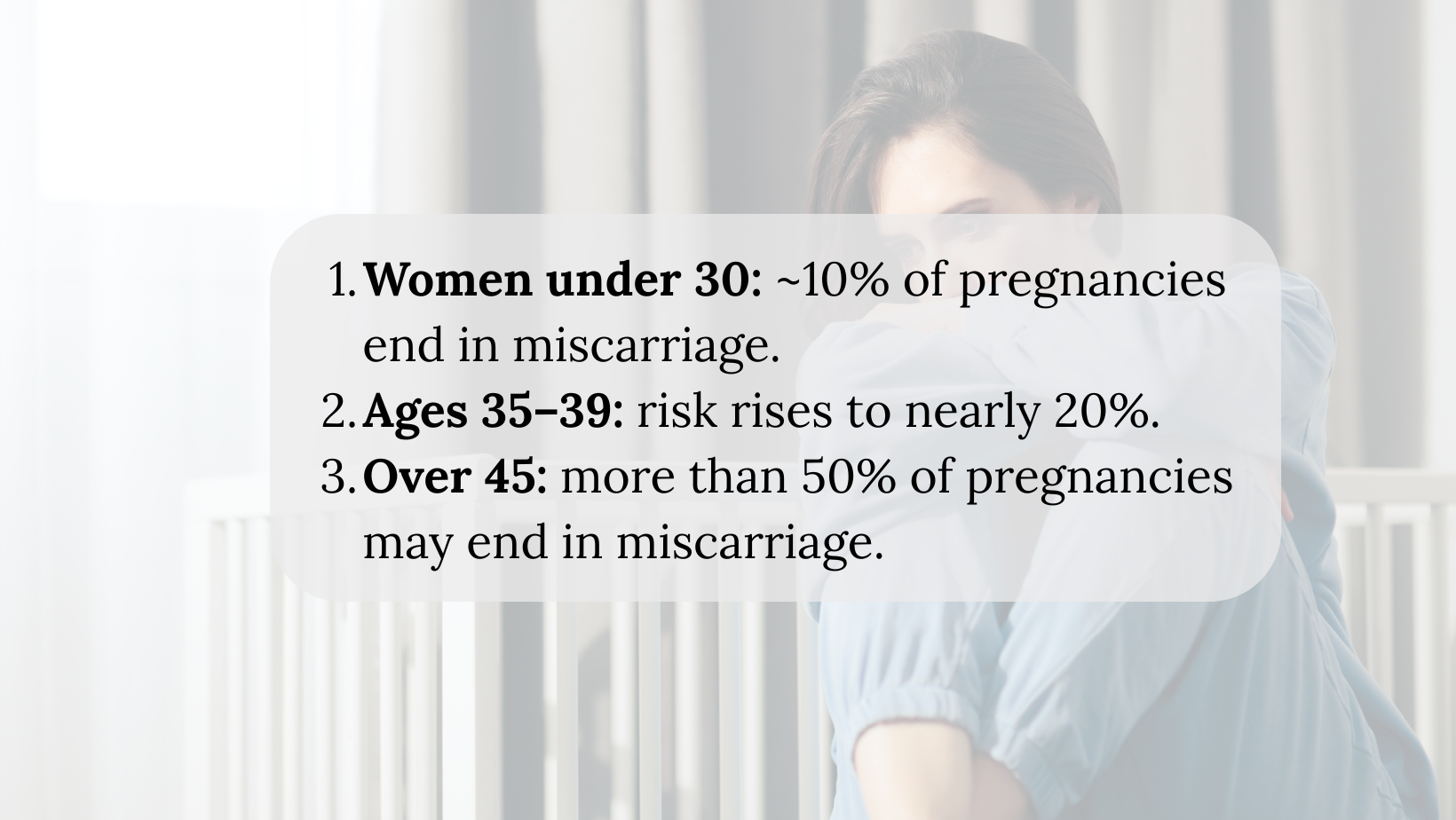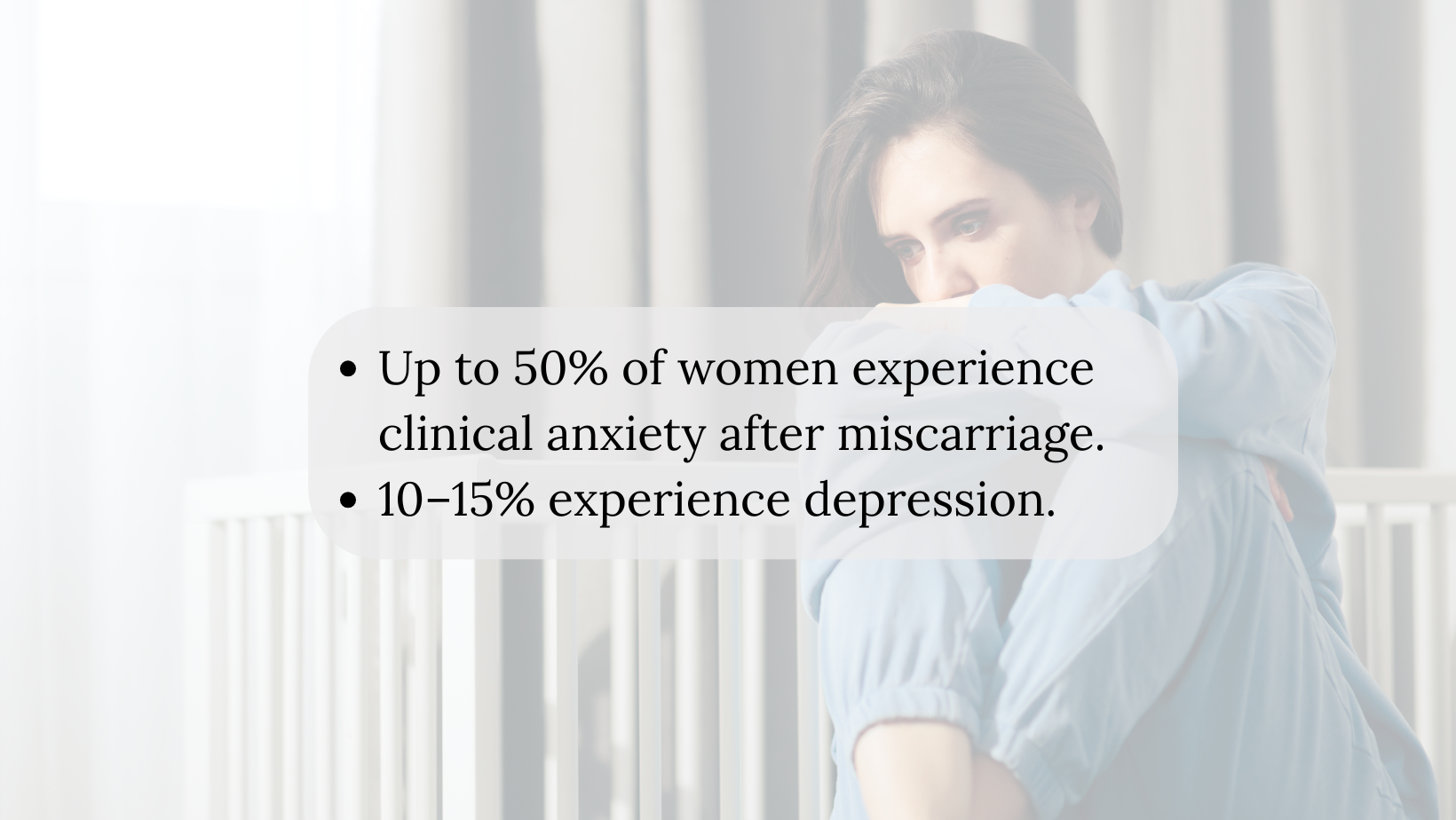Pregnancy & Infant Loss Awareness Month: Why Whole-Body Women’s Health Matters

This isn’t the typical nutrition and lifestyle post you might expect from me. But it’s one that deserves more attention.
October is Pregnancy & Infant Loss Awareness Month, and while this topic may feel heavy, it’s also deeply important. Because behind the statistics are real women, friends, clients, sisters, colleagues, navigating invisible grief while their bodies and hearts are trying to heal.
I consider myself incredibly lucky: I’ve never personally experienced pregnancy or infant loss. But I know families who have. And if you’re reading this, I’m almost certain you also know at least one family who has gone through this heartbreaking experience, even if you don’t know it. Because so often, these stories remain unspoken.
Miscarriage: More Common Than We Realize
Miscarriage is not rare, it is one of the most common women’s health issues worldwide. Yet, because it is hidden in silence, many underestimate just how frequent it is.
- Between 10% and 20% of all known pregnancies end in miscarriage, with most occurring in the first trimester.
- If very early losses (before a woman knows she is pregnant) are included, research estimates the rate could exceed 30%.
- Globally, this adds up to 23 million miscarriages every year or about 44 each minute.
Miscarriage Rates by Age

Global Prevalence
Across all recognized pregnancies worldwide, the combined miscarriage rate is about 15.3%. Country rates vary slightly, but consistently fall between 10–25%.
Multiple Miscarriages
- 10.8% of women experience one miscarriage.
- 1.9% have had two.
- Around 0.7% have experienced three or more.
Behind these numbers are millions of women and families, each with their own story, grief, and healing process.
The Body–Mind Connection in Women’s Health
Pregnancy and infant loss is not just a medical event; it is a profound physical and emotional experience. The body–mind connection plays a central role in how women experience and recover from loss.
Hormones and Stress
Loss is not caused by stress, but the reality is that chronic stress raises cortisol and can disrupt reproductive hormones. For women trying again after loss, the pressure to “stay calm” can actually add another layer of stress.
And while it’s widely believed that psychological stress may play a role in miscarriage, research shows there is no definitive evidence that stress directly causes miscarriage.
“Don’t stress about being stressed.”
Instead, focus on learning stress management and relaxation techniques to help you cope with the strains of modern life during pregnancy, and to avoid turning to smoking, alcohol, or other substances that could harm your health or your baby’s health.
Effects on Body and Self-Perception
Pregnancy often nurtures a sense of closeness and care for the body. But after miscarriage or stillbirth, many women describe feeling betrayed, disconnected, or angry at their bodies. Some internalize blame, perceiving the event as a personal failure even though, in most cases, it is entirely out of their control. This loss of trust can affect not only emotional well-being but also health behaviors, like reduced physical activity or disrupted self-care.
Psychological and Emotional Impact
The grief is intense and often traumatic:

Many develop symptoms of post-traumatic stress disorder (PTSD), nightmares, avoidance, and intrusive thoughts that can last for months or years without support.
One of the hardest aspects is the lack of societal acknowledgment, which can leave women feeling isolated or invisible in their grief.
Mind–Body Interventions
Healing requires tending to both body and mind. Promising approaches include:
- Mindfulness and relaxation practices to reduce anxiety and reconnect with the body.
- Group therapy and support networks to share experiences and lessen isolation.
- Psychoeducation and counseling to normalize grief and provide coping tools.
And just as important: the role of friends, family, and community.
Sometimes, supporting someone through loss means asking what they truly need in that moment.
Don’t assume it’s always a hug or a warm meal. It might be space. It might be you doing the dishes so they can lie down. Or it might be sitting in silence together. The key is to show up without an agenda and let them guide what support looks like.
High-quality, long-term psychosocial support is vital, because recovery is deeply personal and never linear.
PCOS and Miscarriage Risk
Certain conditions raise the risk of pregnancy loss. Women with polycystic ovary syndrome (PCOS), for example, face a significantly higher risk of miscarriage compared to women without PCOS.
- First-trimester miscarriage affects 30–50% of women with PCOS, versus 10–15% of women without PCOS.
- Women with PCOS may be three times more likely to experience early pregnancy loss.
- In IVF pregnancies, miscarriage rates reach 35.8% in women with PCOS compared to 23.6% in non-PCOS counterparts.
The reasons are complex, ranging from hormonal imbalance and chronic inflammation to insulin resistance and altered endometrial receptivity.
The good news: research suggests that targeted care, such as insulin sensitizers, lifestyle interventions, and close monitoring, may help reduce risk. This highlights the importance of whole-body, individualized women’s health care, especially for those with PCOS or other metabolic challenges.
Moving Toward Whole-Body Care
Pregnancy and infant loss awareness isn’t just about remembrance, it’s about rethinking care. Women deserve more than fragmented medical attention. They need support that honors the whole person: physical, hormonal, emotional, and spiritual health.
Because healing after loss is not only about mending the body. It’s about rebuilding trust in the body, processing grief, and finding new ways forward.
Key Takeaways
- Miscarriage affects 10–20% of known pregnancies worldwide, making it one of the most common women’s health issues.
- Loss impacts both body and mind, and recovery requires integrated support.
- Conditions like PCOS significantly increase miscarriage risk, highlighting the need for specialized, whole-body care.
- Compassion, awareness, and open conversation reduce isolation and create space for healing.
If you’ve experienced loss, please know: you are not alone, and your grief matters. And for the rest of us, this month is a reminder to show up with compassion, listening, and support for the families around us who carry this invisible pain.
